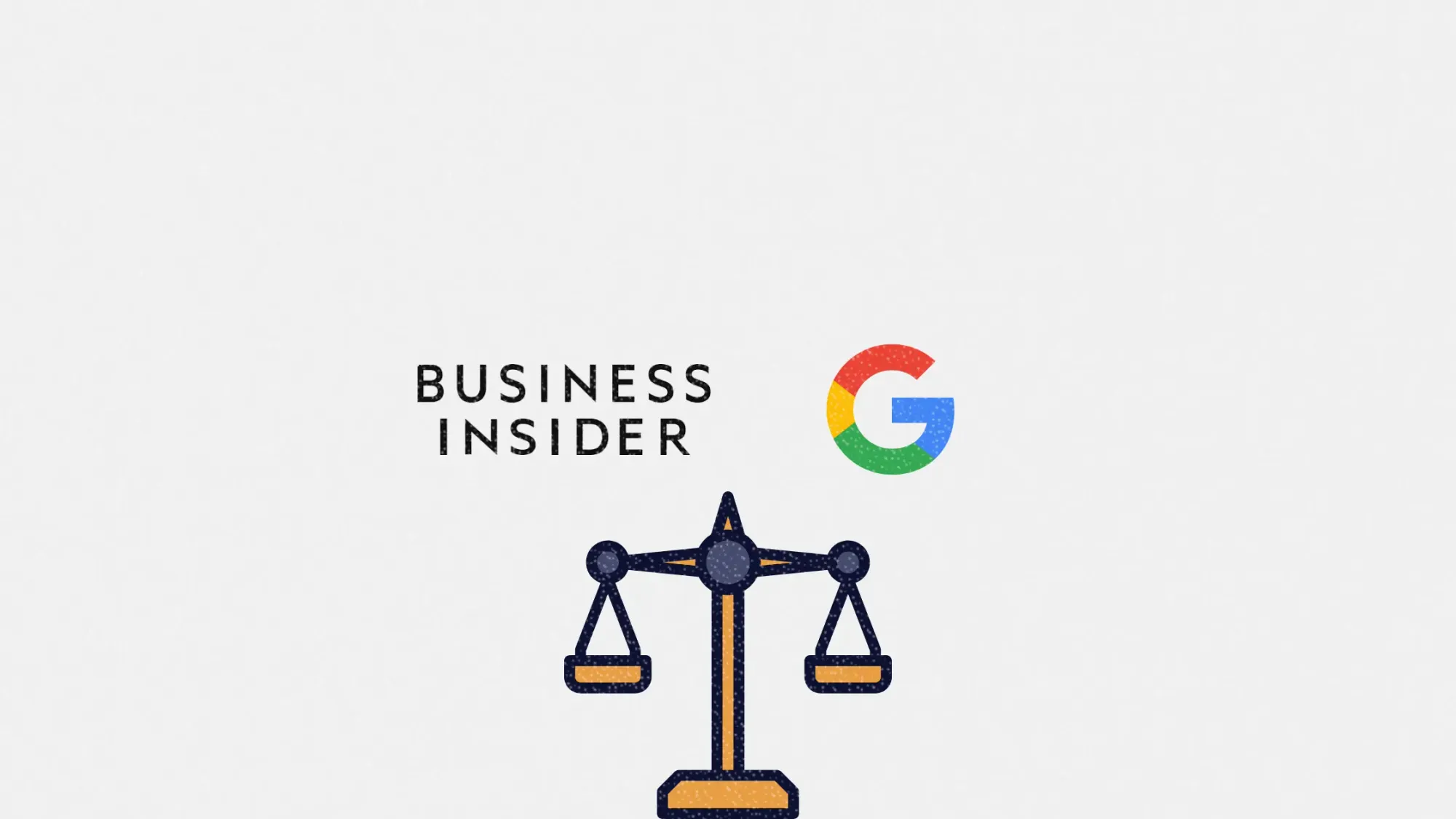Business Insider sues Google over ad tech monopoly claims
Business Insider alleges Google manipulated ad auctions to block rivals and squeeze publishers

Another major publisher is taking Google to court. Business Insider has filed an 89-page lawsuit accusing the tech giant of unlawfully monopolizing the digital advertising ecosystem, claiming it has systematically suppressed competition and diminished publisher revenue through its tightly integrated ad tech stack.
This article explores the key allegations, places them in the broader context of ongoing antitrust pressure, and offers strategic insight into what this means for marketers, publishers, and anyone navigating the open web ad economy.
Short on time?
Here’s a table of contents for quick access:

What's in the lawsuit?
Business Insider’s complaint alleges that Google abused its dominance by tightly linking two of its core ad products: DoubleClick for Publishers (DFP) and AdX, its advertising exchange. The lawsuit claims this integration routes publisher inventory directly to AdX without giving other exchanges a fair chance to compete.
A central issue is the now-defunct ‘Last Look’ feature, which allegedly allowed Google to view competing bids before submitting its own. The lawsuit also targets ‘Dynamic Allocation’, which lets Google pit non-guaranteed demand against guaranteed campaigns, and the ‘Unified Auctions minimum bid scheme’, which reportedly allows Google to undercut rivals using insider pricing data.
The complaint argues that millions of smaller advertisers use Google Ads as their only buying platform. That demand is only available to publishers who route their inventory through AdX, giving Google excessive leverage and reducing publishers’ options.
In response, a Google spokesperson told MARKETING-INTERACTIVE that the allegations are “meritless.” They emphasized that publishers and advertisers choose Google tools because they are “effective, affordable, and easy to use.”
What's the industry backdrop?
This lawsuit builds on growing momentum against Google's ad practices. In April 2025, a US court ruled that Google had “willfully engaged” in anticompetitive conduct to maintain monopoly power in open-web display advertising.
Shortly after, PubMatic filed a separate lawsuit, claiming Google's behavior has choked its ability to grow market share and generate revenue. The company said Google’s actions have reduced content diversity, raised ad costs, and hurt competition across the ecosystem.
Both lawsuits follow years of regulatory investigations in the US and Europe. The ad tech stack that once seemed unbeatable is now under legal siege from multiple angles.
What marketers should know
Here’s how this escalating legal pressure on Google could affect digital marketing strategies:
1. Platform dependency is a liability
Over-reliance on Google Ads or Display & Video 360 could backfire if regulatory action forces changes to pricing, access, or auction rules. Marketers should review how much of their ad performance is tied to Google’s stack.
2. Smaller platforms may gain new ground
If courts force Google to loosen its grip, independent ad platforms like PubMatic or The Trade Desk may see a wave of new demand. This could open up more transparent pricing and better publisher-direct relationships.
3. Expect growing demand for transparency
The legal spotlight will push ad buyers to question auction fairness and demand clearer metrics. Marketers should start asking tough questions about how their media dollars move through the system.
4. Diversification is now a strategy, not a suggestion
Now is the time to test alternative DSPs, build publisher-direct deals, and explore supply paths that don’t rely solely on Google infrastructure.
Business Insider’s lawsuit underscores a broader reckoning for the digital ad ecosystem. With Google’s conduct under legal scrutiny and publishers pushing back, marketers must be prepared for shifts in how inventory is accessed, priced, and measured.
By proactively diversifying spend and demanding transparency from tech partners, marketing leaders can navigate this disruption while positioning themselves for whatever the next phase of digital advertising looks like.




